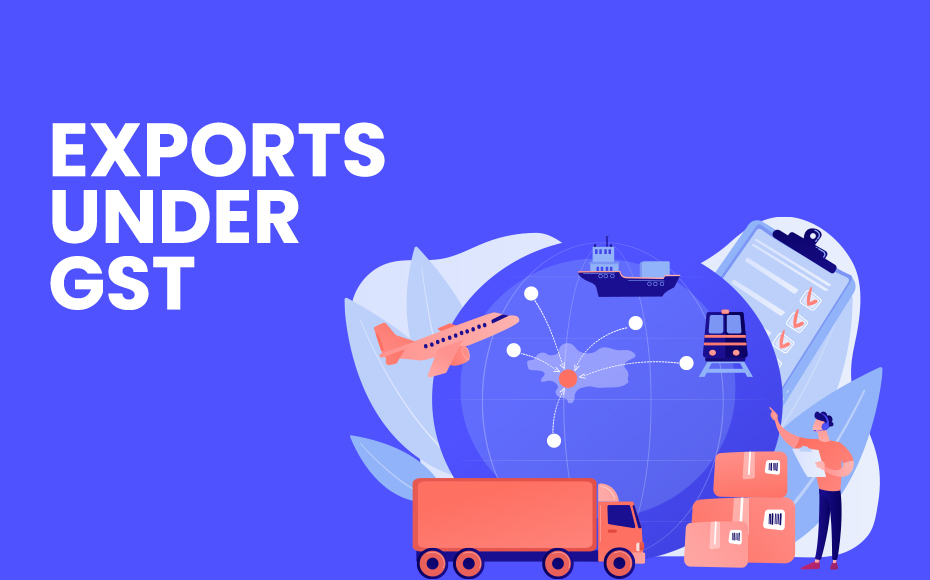
GST IMPORTANT ANNOUNCEMENTS via CIRCULAR NO. 230 to 233 dated. 11th Sept. 2024
A – Circular No. 231/25/2024-GST:
The circular primarily provides clarification regarding the GST treatment of advertising services provided by Indian companies to foreign clients. Here’s a simplified summary:
- Background: Confusion has arisen in the advertising industry where Indian companies providing advertising services to foreign clients are being denied export benefits. The issue revolves around the place of supply and the classification of the Indian advertising company as an “intermediary.”
- Key Clarifications:
- Intermediary Status:
- The advertising company is not considered an intermediary as per Section 2(13) of the IGST Act, if the company is providing a full advertising service (e.g., designing, media buying, strategy) on a principal-to-principal basis.
- The company deals separately with the foreign client and media owners, thus acting on its own account, not as a facilitator.
- The place of supply for such services will be outside India (where the foreign client is located), making the services eligible for export benefits.
- Recipient of Services:
- The foreign client is the recipient of the advertising services, not the target audience in India or any representative of the foreign client in India.
- This clarification reinforces that the services are to be treated as an export if invoicing and payments are handled directly between the Indian advertising company and the foreign client.
- Performance-Based Services:
- Advertising services are not considered performance-based services (which require the physical presence of goods or the recipient in India). The location of the foreign client remains the determining factor.
- Default Rule for Place of Supply:
- Since no other specific provisions apply, the default rule under Section 13(2) of the IGST Act applies. The place of supply is the location of the recipient, i.e., the foreign client.
- This confirms that such services are exports and qualify for zero-rated tax under the GST framework.
- Exception – Acting as an Intermediary:
- If the Indian advertising company only facilitates media space procurement for a foreign client, where the media owner deals directly with the foreign client (invoicing and payments), the company is considered an intermediary.
- In such cases, the place of supply will be where the advertising company is located (i.e., in India), and the export benefits won’t apply.
- Conclusion:
- Advertising services provided by Indian companies to foreign clients, where they act on a principal-to-principal basis, are considered exports, and the place of supply is outside India.
- Only when the Indian company acts solely as a facilitator between the media and the foreign client (acting as an intermediary) will the services be considered supplied in India.
Key Takeaway: The circular confirms that Indian advertising companies providing full services to foreign clients are not intermediaries, and the place of supply is outside India, qualifying as exports. The foreign client is the recipient, not the target audience. If the company only facilitates media space, it is considered an intermediary, with the place of supply in India.
B – Circular No. 231/25/2024-GST:
- Background: Clarification on input tax credit (ITC) for demo vehicles used by authorized motor vehicle dealers.
- Key Clarifications:
- Demo Vehicles: These are vehicles kept by dealers for test drives to show potential buyers the features of the vehicle. These vehicles are bought from manufacturers and listed as capital assets by the dealer.
- ITC Availability: Normally, ITC on vehicles for passenger transportation (with less than 13 seats) is blocked, as per Section 17(5) of the CGST Act. However, demo vehicles used to promote the sale of similar vehicles are treated differently. Since they help dealers sell cars, ITC can be claimed on these demo vehicles.
- Capitalization: Even if the demo vehicles are considered “capital goods” in the dealer’s books, ITC is still available. However, if the dealer claims depreciation on the tax portion of the vehicle’s cost, they cannot also claim ITC on that tax.
- Restriction: If demo vehicles are used for purposes other than promoting sales (e.g., transporting staff), ITC is not allowed. Also, if the dealer only provides marketing services without direct involvement in vehicle sales, ITC cannot be claimed.
Key Takeaway: ITC can be claimed on demo vehicles used to promote sales, as they help in furthering the business, but not if used for other purposes like staff transport or if depreciation on the tax portion is claimed.
C – Circular No. 232/26/2024-GST:
Clarification on place of supply for data hosting services provided by Indian companies to overseas cloud computing providers.
- Background: Data hosting services are when Indian companies provide infrastructure and support for cloud computing services to foreign companies. There was confusion about whether the place of supply for these services should be India or the location of the foreign recipient.
- Key Clarifications:
- Not an Intermediary: The Indian data hosting company is not considered an “intermediary” (middleman), as defined in the IGST Act. They directly provide the service to the cloud company, without being involved with the cloud company’s customers.
- No Physical Goods “Made Available”: The Indian data hosting company is providing a complete service, including equipment, power, and security, which is owned by them. So, the cloud company is not “making goods available” for the service.
- Not Related to Immovable Property: While the data center involves physical property (like buildings), the service provided is much more than just renting out property. The service includes running, managing, and maintaining complex IT systems.
- Conclusion: Since the Indian company provides the service directly to the foreign cloud company (without involving Indian customers or immovable property), the place of supply is the location of the recipient, which is the foreign company. This means the service can be treated as an export, which is exempt from GST, provided other export conditions are met.
Key Takeaway: Data hosting services provided by Indian companies to foreign cloud providers are considered exports, as the place of supply is the foreign recipient’s location. This allows the Indian provider to benefit from export exemptions.
D – Circular No. 233/27/2024-GST:
Clarification on refund of IGST for exporters who imported inputs without paying IGST, in line with Rule 96(10) of the CGST Rules, 2017.
- Background: Rule 96(10) generally prevents exporters from getting IGST refunds on exports if they have used certain exemptions or concessions (like not paying IGST on imported inputs). However, there are cases where exporters who originally didn’t pay IGST on imports later paid it with interest.
- Key Clarifications:
- Retrospective Amendment: An explanation was added to Rule 96(10) that says exporters who didn’t take exemptions on IGST, or compensation cess (only on Basic Customs Duty) can still claim IGST refunds. This applies retrospectively.
- Regularizing Refunds: If an exporter originally didn’t pay IGST/cess on imported inputs but later paid it along with interest, they can still claim the IGST refund on their exports. This applies even if the refund was originally considered in violation of the rules.
- Customs Reassessment: To regularize the refund, the Bill of Entry for the imports must be reassessed by customs to reflect the payment of IGST and cess.
- Conclusion: Exporters who correct their earlier import processes by paying the IGST/cess they previously avoided can still get their refunds on the IGST paid for exports. This ensures that they are not penalized for initial non-compliance, as long as they pay the due taxes.
Key Takeaway: Exporters who didn’t initially pay IGST on imports but later corrected this can still claim their IGST refunds on exports, provided they follow the reassessment process.


.svg)

